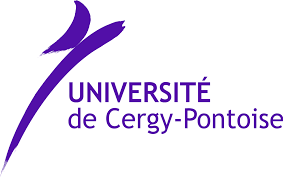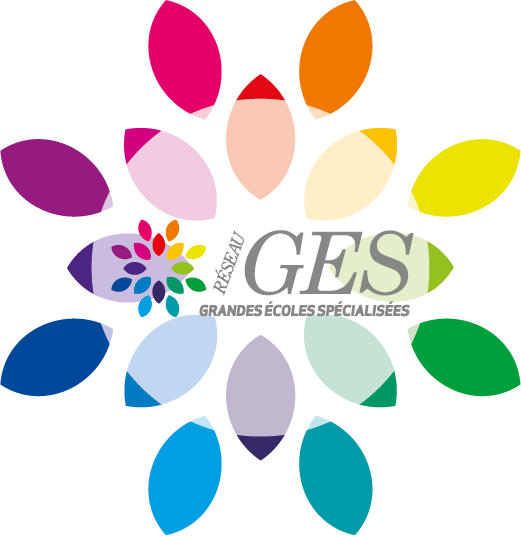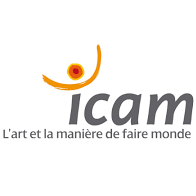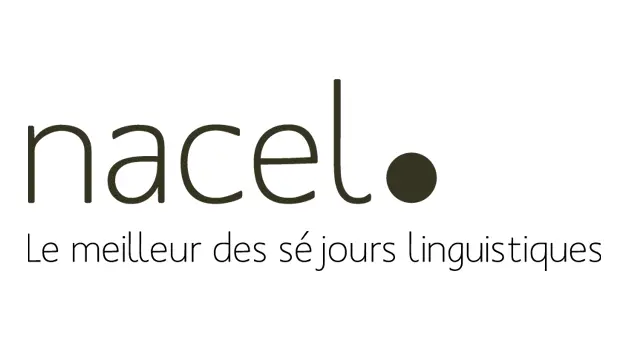
How do I learn Russian? Our 10 tips for beginners
 Learn now
Learn now
Summary
of the page
>
1 - Setting goals
>
2 - Learning the basics of Russian
>
3 - Dare to make mistakes
>
4 - Reading and listening to Russian
>
5 - Talking with Russian speakers
>
6 · Apprendre le russe par le jeu
>
7 - Demystifying the Cyrillic Alphabet
>
8 - The grammar and structure of the Russian language
>
9 - Training every day
>
10 - Taking pleasure
Want to find out how to learn Russian fast? Here are 10 tips from Globe Speaker, the revolutionary language learning solution.
 Learn Russian
Learn Russian
1 - Setting goals
Se fixer des objectifs réalistes et motivants est un aspect fondamental dans l'apprentissage du russe. Ces objectifs peuvent varier en fonction de vos intérêts personnels ou professionnels. En gros, il faut savoir pourquoi vous voulez apprendre le russe ? Vous envisagez de voyager en Russie ou dans un autre pays russophone, votre objectif pourrait être de maîtriser les phrases clés pour la communication quotidienne. Pour ceux qui cherchent à se plonger dans la riche culture et l'histoire de la Russie, learn Russian peut ouvrir les portes à une compréhension plus profonde de sa littérature, de sa musique, et de son art. Sur le plan professionnel ou des affaires, la maîtrise du russe peut être un atout précieux, surtout dans les secteurs qui collaborent étroitement avec les marchés russophones. En définissant ces objectifs, vous pourrez aligner votre processus d'apprentissage avec vos passions et aspirations, rendant l'expérience plus gratifiante et engageante.
2 - Learning the basics of Russian
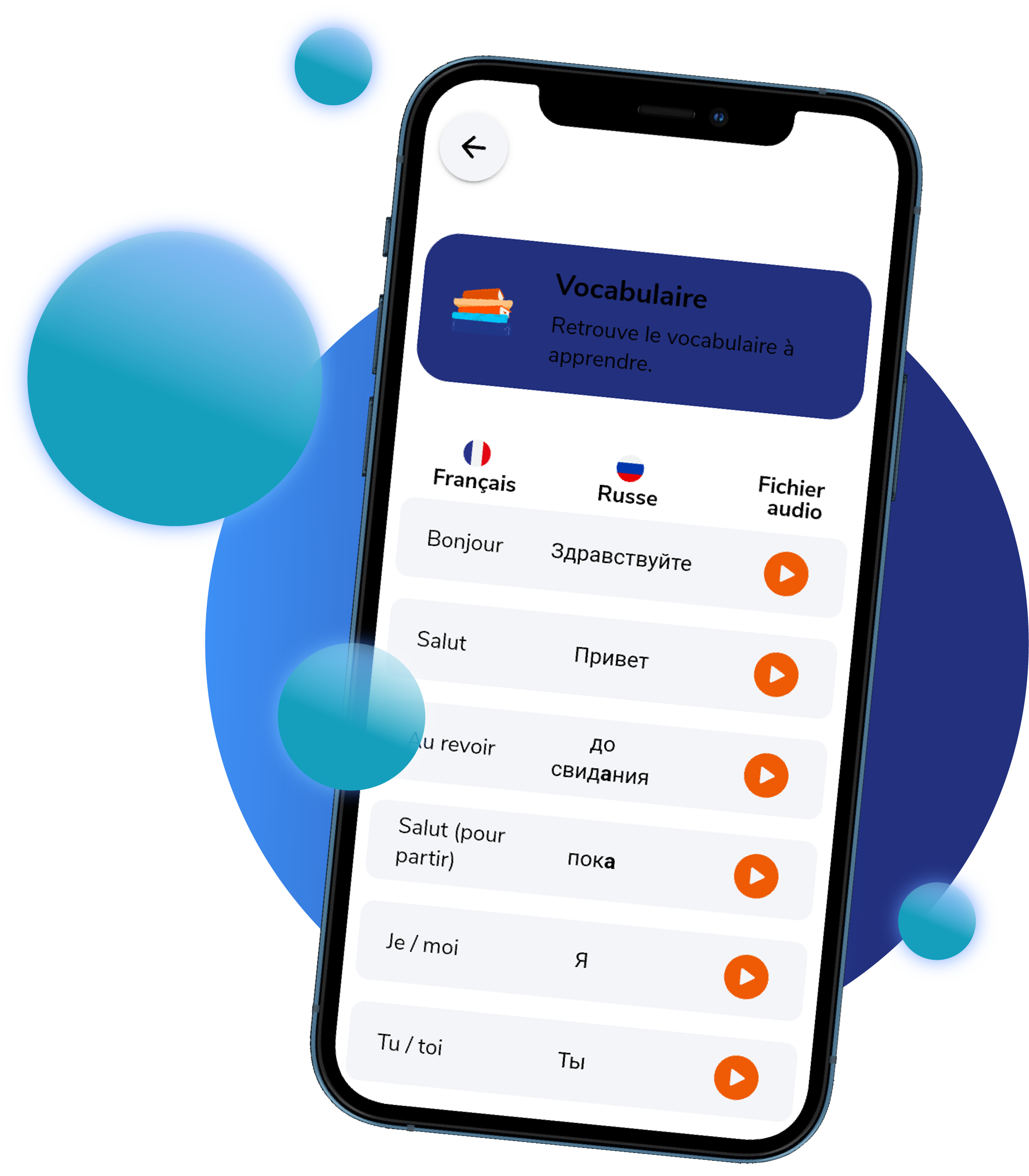
Learning the basics of Russian is an essential step for anyone new to the language. It all starts with acquiring the Cyrillic alphabet, which is different from the alphabet used in French. Once you've familiarized yourself with the new letters, the next step is to learn simple words and phrases, such as greetings, numbers and everyday everyday expressions. Particular emphasis should be placed on pronunciation, as Russian has sounds that may be unusual for French speakers. These basics enable you to start simple conversations, such as asking for directions!
3 - Dare to make mistakes
Daring to make mistakes is the basis of learning Russian, especially for beginners. When learning a new language, it's natural to feel intimidated by the idea of speaking and making mistakes. making mistakes. Yet it's by making mistakes and correcting them that we learn best. Don't be afraid to express yourself in Russian, even if you're sure you'll make mistakes. Whether in pronunciation, grammar or vocabulary, every mistake is a learning opportunity. Encourage yourself to speak, write and interact in Russian as often as possible, and see every interaction as a chance to improve. Remember that even native speakers appreciate the effort and are usually understanding and willing to help.
4 - Reading and listening to Russian
Reading and listening to Russian are two essential activities that considerably speed up the process of learning the language. Reading in Russian, whether it's books suitable for beginners, online articles, or even cartoons, helps reinforce your understanding of vocabulary and grammatical structures. It also improves your ability to recognize and different forms of words and phrases in context. On the other hand, listening to Russian through podcasts, songs, films or TV shows is just as important. This exposes you to different accents and intonations, improving your listening comprehension and pronunciation. By making reading and listening a regular part of your learning routine, you can significantly increase your fluency and confidence in using Russian in a variety of situations.
5 - Talking with Russian speakers
Speaking Russian is one of the most effective ways to improve your Russian skills. This direct interaction allows you to practice the language in a real and dynamic context, reinforcing your ability to communicate fluently and naturally. your ability to communicate fluently and naturally. By conversing with native speakers, you'll be confronted with authentic turns of phrase, idiomatic expressions and everyday language usage, all of which will help you improve your Russian. which are often absent from textbooks. What's more, it offers an excellent opportunity to work on your pronunciation and listening skills, while gaining confidence in your language skills. Whether in person, via online language exchanges or conversation platforms, every conversation with a Russian speaker is a step closer to mastery of the language.
6 - Learning Russian through play
Globe Speaker's "serious game" method for learning Russian is a revolutionary approach specifically adapted to the unique characteristics of each language. This innovative method uses games as a teaching medium, making learning more interactive, fun and effective. By focusing on the particular aspects of Russian, such as its specific vocabulary, unique grammatical structures grammatical structures and idiomatic expressions, Globe Speaker's games make learning easy. This immersion through play helps to reinforce the memorization and comprehension of Russian in a natural and engaging way, while making the learning process more dynamic and less restrictive.

 Learn now
Learn now
7 - Demystifying the Cyrillic Alphabet
Understanding the Cyrillic alphabet is a fundamental step for any beginner wishing to learn Russian. Although it may seem intimidating at first, with its characters distinct from the the Latin alphabet, it is actually more accessible than it appears. The Cyrillic alphabet has 33 letters, each with its own unique pronunciation. Once you start learning these letters and their sounds sounds, you'll quickly discover similarities with the Latin alphabet, which makes learning easier. What's more, Russian phonetics are relatively regular, which means that once you've know the pronunciation of a letter, you can decipher words quite easily. The key is to immerse yourself gradually, starting by learning a few letters at a time and practicing perhaps through games or interactive exercises. With a little practice and patience, mastering the Cyrillic alphabet becomes a manageable and even rewarding task, opening the door door to a deeper exploration of the Russian language.
8 - The grammar and structure of the Russian language

Russian is known for its complex grammar, with six cases (nominative, genitive, dative, accusative, instrumental and prepositional) that modify the form of words according to their role in the sentence. in the sentence. This also includes the gender (masculine, feminine, neuter) and number (singular, plural) agreement of nouns, adjectives and pronouns. Another distinctive feature is the absence of the article "le" or "la" before nouns, adjectives and pronouns. or "la" before nouns, a feature that simplifies certain structures compared with other languages. In addition, Russian uses two verbal aspects (imperfective and perfective) to indicate the completion or continuation of an action. Understanding these aspects of Russian grammar is essential for constructing correct sentences and communicating effectively. Although learning these rules rules may seem difficult at first, a methodical approach and regular practice will enable you to assimilate them gradually.
9 - Training every day

Regular use of applications like Globe Speaker can play a key role in this process. Available at all times, this app offers the flexibility to practice wherever you are, whether during a break at work, in transit or at home. Thanks to a variety of interactive exercises and lessons adapted to different levels, Globe Speaker enables users to reinforce their language skills day after day. By integrating this daily practice into your routine, you can accelerate your learning and significantly improve your command of of Russian. The application provides a constant opportunity for language immersion, essential for acquiring and maintaining proficiency in Russian.
10 - Taking pleasure
L'excitation de découvrir une nouvelle culture et langue peut être une grande source de motivation. Pour rendre l'apprentissage plus agréable, intégrez des activités ludiques et engageantes. Par exemple, regarder des films russes, écouter de la musique russe, ou même participer à des jeux de langue peuvent non seulement rendre l'expérience d'apprentissage plus plaisante, mais aussi vous aider à assimiler la langue plus naturellement. Rappelez-vous que le plaisir ressenti en apprenant est un puissant moteur de réussite. Ainsi, en associant l'apprentissage à des activités agréables, vous êtes plus susceptible de rester motivé et engagé dans votre parcours linguistique. Voici donc nos astuces sur comment apprendre le russe quand on est débutant !
Your questions
on learning Russian
Is it hard to learn Russian?
Where is Russian spoken in the world?
How can I speak Russian quickly?
How can I learn Russian on my own?
How do you say hello in Russian?
- Доброе утро (dobroye utro) : Good morning
- Добрый день (dobriy den) : Good afternoon
- Добрый вечер (dobriy vyecher) : Good evening
- Здравствуйте (zdravstvuyte) : Hello
What is the best way to learn Russian?
Language Club
The blog that tells you everything about languages


Language Club
The blog that tells you everything about languages


All languages to learn
Certification preparation courses available

Toeic
They learned a new language with Globe Speaker





Rien à redire, super.

Florian • 24 ans
Niveau A1 à A2 - Abonnement Standard





L'esprit du site est très bien pensé avec un itinéraire. Cela donne envie d'en savoir plus.

Marie-Anne • 41 ans
Niveau A1 à B1 - Abonnement Premium





Très compétent, bon suivi, bon site et excellente méthodologie.

Diane • 28 ans
Niveau A1 à B1 - Abonnement Premium





J'ai apprécié de travailler sur la plateforme Globe Speaker, autant de fois que je le voulais ou pouvais, ainsi qu'avec Maria pour la partie coaching.

Véronique • 41 ans
Niveau A2 à B2 - Abonnement Premium CPF





Plateforme très pédagogique, et adaptée à tous les âges. J'ai vraiment eu l'impression d'apprendre.

Maria • 28 ans
Niveau A1 à B1 - Abonnement Premium















